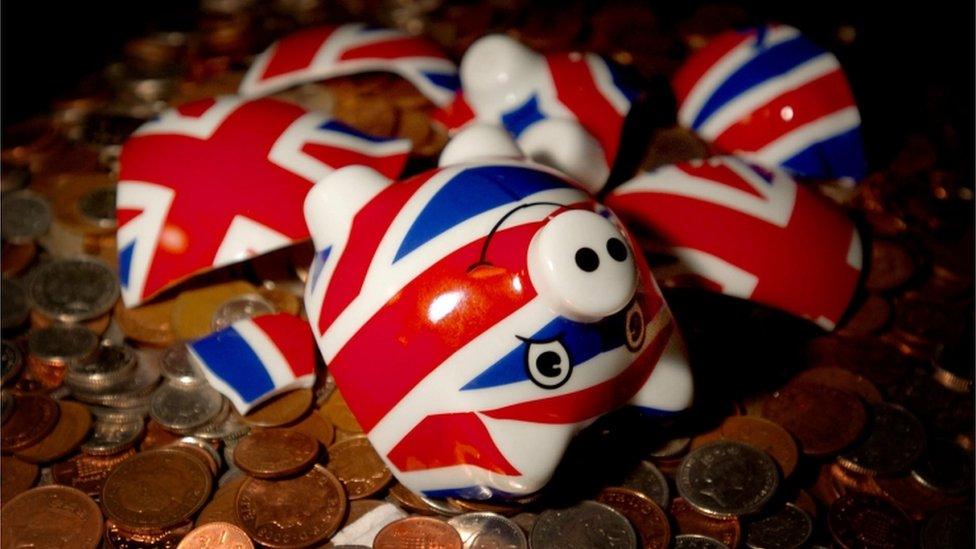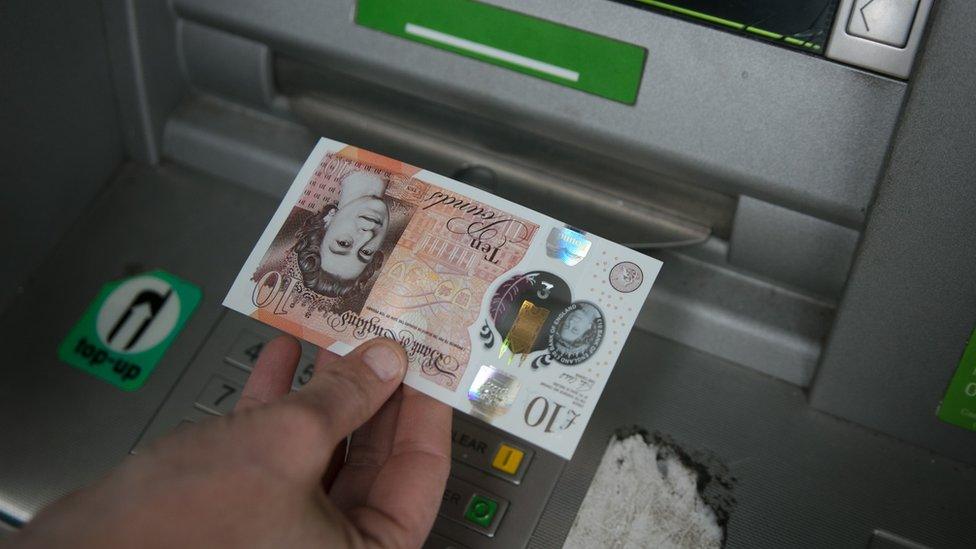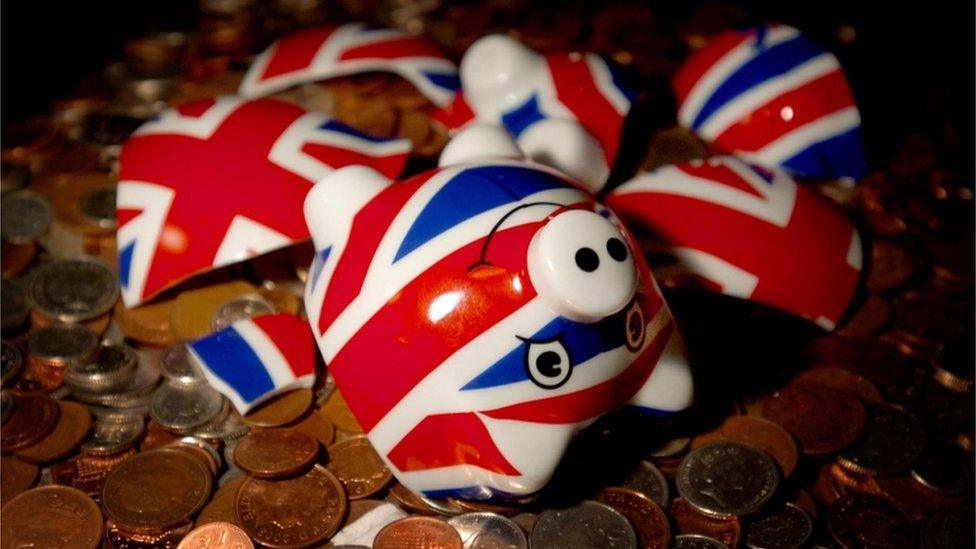FCA boss: 'No such thing as free banking'
- Published
- comments

Up to half of the profits made by big banks from current accounts come from just one in 10 customers, according to the industry regulator.
Customers with overdrafts, which are more profitable than other types of credit, are particularly lucrative.
A report by the Financial Conduct Authority (FCA) said banks were also benefiting from customers taking loans and credit cards with the same bank.
FCA boss Andrew Bailey said: "There is no such thing as free banking".
The FCA said that the main High Street banks had a captive audience of customers who did not switch and who were targeted for cross-selling of other products.
These major banks, despite the emergence of more challenger banks, still had control of more than 80% of the personal current account market.
The regulator found that banks were making profits from customers who held money in accounts that paid little or no interest. Those with high balances were particularly lucrative for the banks.
Often, loyal customers have savings and current accounts at the same bank, instead of seeking out better interest rates for their savings.
As a result, they were receiving interest between 30% and 50% lower than they could generate elsewhere, the FCA found.
About half of customers who had a credit card and a current account used the same bank for both, and a similar proportion had a loan with the same bank - even though these might not offer the best deals.
Mr Bailey said the report was helping inform the FCA about the complexities of the current account market, and comes after a series of investigations into why few people shop around for these financial products.
Overdraft row
Overdraft revenue, including interest and other fees and charges, was responsible for more than 30% of banks' personal current account income
A recent FCA report revealed that more than three million people have dipped into an unauthorised overdraft in the course of a year, exceeding their agreed limit.
Yet, the majority of unarranged overdraft charges are concentrated on less than 2% of customers, some of whom are vulnerable.
The regulator has already proposed that banks offer more information to customers, including mobile alerts, about when and how they go into the red.
It is also considering a ban on fixed fees, which can lead to relatively high charges for a small unarranged overdraft. Part of discussions will be a "potential backstop price cap for overdrafts", but it is not an immediate proposal. The FCA said that it needed to overcome potential legal issues that had been encountered in the past.
This stance has been criticised by debt and consumer charities, many of which want to see a speedy cap on the cost of overdrafts, to protect these potentially vulnerable customers.
The FCA collected information from 45 firms across the range of the market, including major banks, small retail banks, building societies, specialist lenders and new digital banks.
A spokesman for UK Finance, which represents the major banks, said: "Management of personal finance is key and overdrafts are important for many consumers as a short-term solution to smooth cashflow.
"Lenders are developing and enhancing a series of measures to help those who regularly use their overdraft, including new ways to better identify and support customers with persistent overdraft debt. We will continue to work closely with the FCA through the next stage of its review and this report provides useful insight into what is a complex set of issues."
- Published31 May 2018

- Published30 April 2018

- Published16 October 2017

- Published18 October 2017
